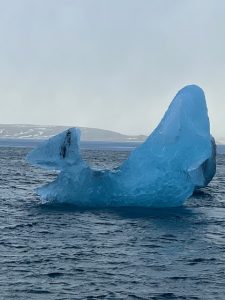BOTH HANDS
BOTH HANDS
 For a long time, I walked around saying, I can’t find my way back. At first, it was a voice in my head, but then it became my response to anyone who asked, how is your writing going? The more I answered, I can’t find my way back, the more I clung to this new truth.
For a long time, I walked around saying, I can’t find my way back. At first, it was a voice in my head, but then it became my response to anyone who asked, how is your writing going? The more I answered, I can’t find my way back, the more I clung to this new truth.
Tied to this expression of failure were other damning proclamations: I have lost my resolve, my intention, my determination. I can’t see a way forward. It was official: I had stopped writing ergo I was not a writer. Maybe I’d never been a writer.
I know it is possible to return to writing. I have watched with pride and admiration as my son Luke started writing again after a long break. He yoked himself to a deadline: every Friday, he would post new writing to his blog. It didn’t matter if anyone read his words. He was committed to writing the post and publishing it.
In the days before he posted, I watched him disappear into the work. Nine, ten uninterrupted hours of writing, researching, rewriting, editing. He didn’t break to eat, although sometimes, I’d walk by his desk and see he had refilled his glass of water. I hesitated to break his trance by asking if he needed food. His focus was the attention of a writer. I was witnessing the devotion in practice.
I know what I’d tell a friend who was struggling to write: just write five minutes a day, write anything, set the clock, scribble, move your hand across the page and then walk away. I tried telling myself this and was unconvinced. I was waiting. Waiting for a ‘yes’ from my agent, reassurance that my new book was good. A ‘yes’ from a literary journal instead of another rejection. I knew, of course, that the ‘yes’ had to come from me. I had to yoke myself to the ‘yes’ the same way Luke committed to his Friday deadline. Committed to start. To stare into the darkness and burrow down, deeper, and deeper, until something, even the tiniest piece clicked into place, and there was the distant glint of sense.
Last February, I visited Iceland with my child Nicole. In the cab to Reykjavik, we were enveloped in a dense white fog. The windows in the backseat were whited out by snow, then more fog, then sleet. For a moment, we’d break free into a patch of light, and I’d glimpse the landscape: tumbled black volcanic rock sheathed in fresh snow, the ocean beyond a pebbly grey.
We boarded a bus and drove east to the Jökulsárlón Glacial Lagoon. Chunks of Gatorade-blue icebergs appeared rooted to the lake’s bottom. Fellow tourists rushed off the bus to take selfies with the icebergs before hurrying to the next photo point. From different angles, the icebergs assumed new shapes. A breeching humpback whale. A giant bird with swooping neck and sharp wings. When it was time to leave, I kept looking over my shoulder at the icebergs. It felt disrespectful to turn my back, like looking away from the Torah when it is paraded through synagogue.
This is a sacred place, I said to Nicole. All the places we visited felt sacred, deserving of awe, of standing in the freezing cold to gaze and grasp for words. The waterfalls, the fields of colorless, petrified moss which covered the frozen ground, the geysers that erupted every five minutes, like subterranean gods sneezing at the sky. The black sand beaches of volcanic rock smashed and sifted over thousands and thousands of years.
Remind me, I said to Nicole, how to say, pay attention in Spanish? I needed another language to rivet me in this moment, hone my focus. Presta atención: the jewel-like gleam of icebergs, encroaching storms dragging curtains of thunder across the sky. Holes in the sky leaking a watery blue light, the faintest promise of clear skies before being blanketed again in white.
There are twenty-six words for snow in Icelandic. Eight words for fog.
I stared at a nothingness that strained my eyes and demanded I look harder. To see and find words for what I saw. I watched until the clouds intervened, separating us from the land, and I was again thrust into a blinding white light. The clouds quilted. Then wispy. Then whipped into a froth.
Brýla, brækja, dumba, móda, móska, mugga, skodda, sorti.
Isn’t naming the gradients of fog a form of devotion? To seeing, struggling to discern. A strict, relentless attention that requires constant work.
In the last stanzas of his poem, “I am writing with both hands,” Franz Wright writes,
I am writing to you
all the time, I am writing
with both hands,
day and night
Day and night. That is what the devotion demands. An unblinking gaze. Tending to the work with both hands. So today, tonight, I come to you with both hands. Maybe you are reading this and maybe you aren’t. But herein is the devotion: it takes both hands. A lifetime of days and nights. Twenty-six words. Eight. One. It asks only all that I am.
—
Claudia Hinz lives in Bend, Oregon. Her work has been published in Women Writers, Women’s Books, Story Magazine, The Christian Science Monitor, The Wrath-Bearing Tree, The Manifest-Station, Brevity, The Boston Globe, 1859 Oregon’s Magazine, Flash Fiction Magazine, and BLUNTmoms.
Category: Contemporary Women Writers, On Writing























